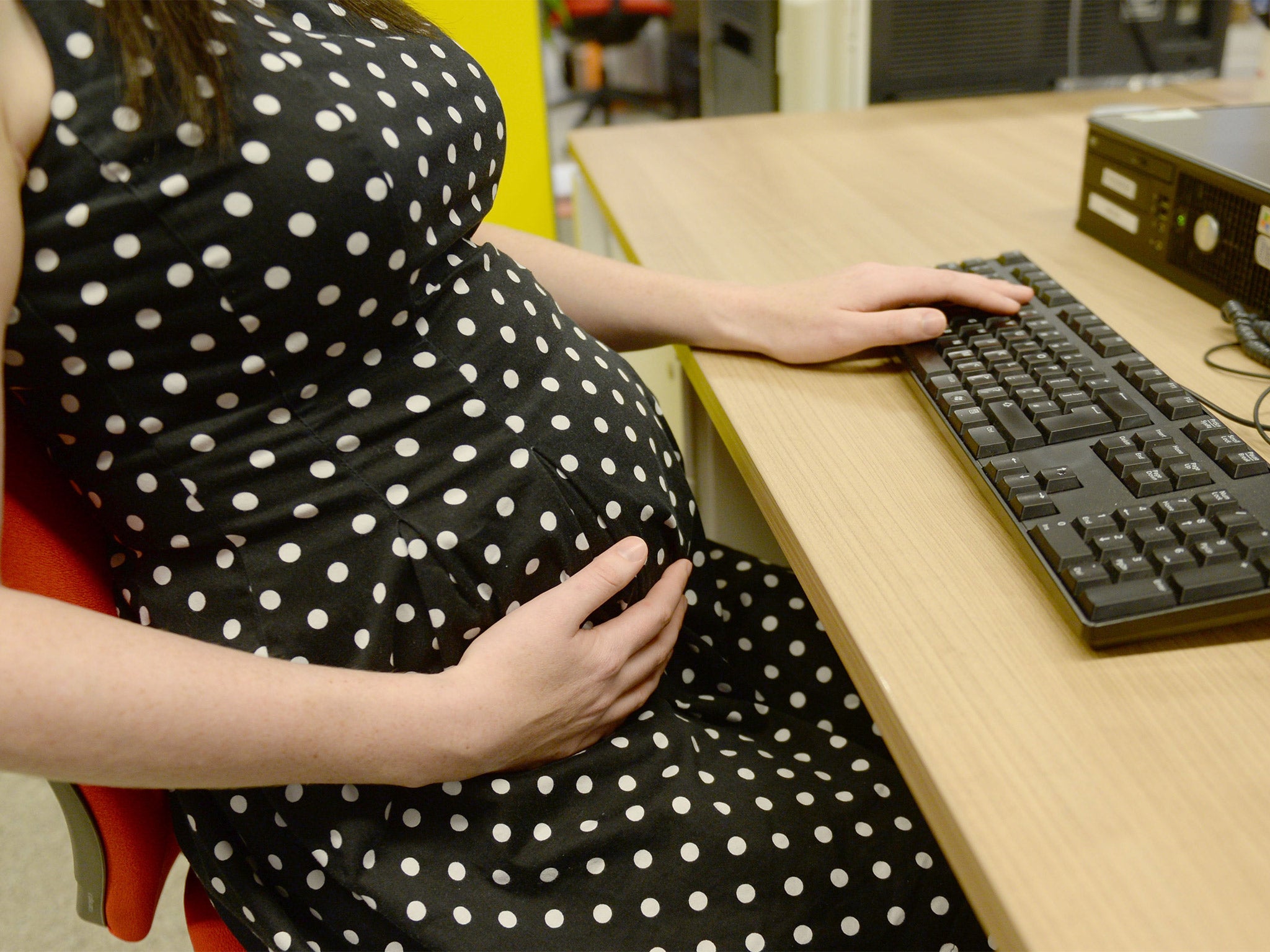Pregnancy: The financial catastrophe
Pregnancy discrimination is increasing and the cost is borne by us all, as Felicity Hannah has been discovering

Children are like precious jewels, they are beautiful – and very expensive. There’s an endless stream of news stories about the cost of kids; the £230,000 cost of raising a child to 18, according to the insurer LV; the £5,400 cost of just part-time childcare, according to the Family and Childcare Trust; even just sending a child back to school with all their kit costs £186, says Nationwide Credit Cards.
But while those news stories focus on the cost shouldered by all parents rearing young families, there is one cost that is borne by one specific parent. Pregnancy discrimination is a widespread problem and one that can cost a soon-to-be mother both immediately and in the longer term.
Research from the Department for Business, Innovation and Skills and the Equality & Human Rights Commission has shown that 11 per cent of women reported being dismissed, made redundant or treated so badly they had to leave once they became pregnant or returned to work after a baby.
A staggering 20 per cent reported another financial loss, such as salary reduction, failing to gain a promotion or not receiving an expected pay rise or bonus.
Women are losing money by having babies and a new study has tried to quantify exactly how much it is costing them. The report from the Equality and Human Rights Commission (EHRC) found something more unexpected too – this kind of discrimination doesn’t just harm families, damage mothers’ career opportunities and cost the state money. It also damages the companies that allow employees to be discriminated against this way.
The collective cost and the personal pain
British women collectively lose £113m a year as a result of losing their jobs during or immediately after a pregnancy. Even those who retain their jobs take a £34m collective hit over the following year as a result of failing to get promotion, having their salaries reduced, being demoted and receiving a lower rise or bonus.
The numbers are pretty stark and the cost to the public purse is also not insignificant. The report found that supporting families whose incomes fall as a result of this discrimination costs the state up to £16.7m a year.
Frustratingly, the businesses themselves that allow women to be treated this way lose nearly £280m a year as a result of recruitment and training costs, as well as lost productivity. That number does not include the cost of employment tribunals and reputational damage, so the actual figure could be even higher.
Business minister Margot James said: “Not only is discrimination in the workplace illegal - it makes absolutely no business sense, with a significant cost to employers and a devastating impact on the careers of new mothers and pregnant women.”
Get a free fractional share worth up to £100.
Capital at risk.
Terms and conditions apply.
ADVERTISEMENT
Get a free fractional share worth up to £100.
Capital at risk.
Terms and conditions apply.
ADVERTISEMENT
The cost to individual women varies enormously, as salaries, bonus structures and the potential for promotion can also vary so widely. Very worryingly, however, the cost of challenging such discrimination is all too easily quantifiable – it’s a lot and it is putting women off challenging their mistreatment.
Jo Swinson, chair of charity Maternity Action, said: “Too many women are unfairly selected for redundancy and lack the resources to challenge this. We need to provide stronger legal protection against discrimination for women facing redundancy during pregnancy, maternity leave and return to work.
“Employment tribunal fees of up to £1,200 make justice unaffordable for most women. We need to remove financial barriers to accessing justice if we want women to exercise their rights.
“Women on zero hours and agency contracts deserve maternity rights at work but many are excluded from basic entitlements, such as paid time off for antenatal appointments.”
The ‘motherhood wage penalty’
Mothers who remain in or return to work still suffer the financial effects of children long after they’ve outgrown their scratch-mitts. Research from the Institute of Fiscal Studies (IFS) has shown that, while women typically earn 18 per cent less an hour than men, the gender pay gap widens to 33 per cent less than men an hour for 12 years following childbirth.
The researchers said the widened pay gap was as a result of women typically working fewer hours and therefore being passed over for promotion, allowing men to pull ahead.
Robert Joyce, associate director at the IFS and an author of the report, said the pay gap creeps up over time: “Women in jobs involving fewer hours of work have particularly low hourly wages, and this is because of poor pay progression, not because they take an immediate pay cut when switching away from full-time work. Understanding that lack of progression is going to be crucial to making progress in reducing the gender wage gap.”
Growing threat
Worryingly, the issue of maternity discrimination is far from being overcome; in fact it is on the rise. A report from the Women and Equalities Committee earlier this year revealed that there has been a “shocking” rise in discrimination over the last 10 years
Maria Miller, Conservative MP and committee chair behind this latest report, said: “The arrival of a new baby puts family finances under extreme pressure yet, despite this, thousands of expectant and new mothers have no choice but to leave their work because of concerns about the safety of their child or pregnancy discrimination.
“Shockingly this figure has almost doubled in the last decade, now standing at 54,000… The Government’s approach has lacked urgency and bite.”
Join our commenting forum
Join thought-provoking conversations, follow other Independent readers and see their replies
Comments
Bookmark popover
Removed from bookmarks